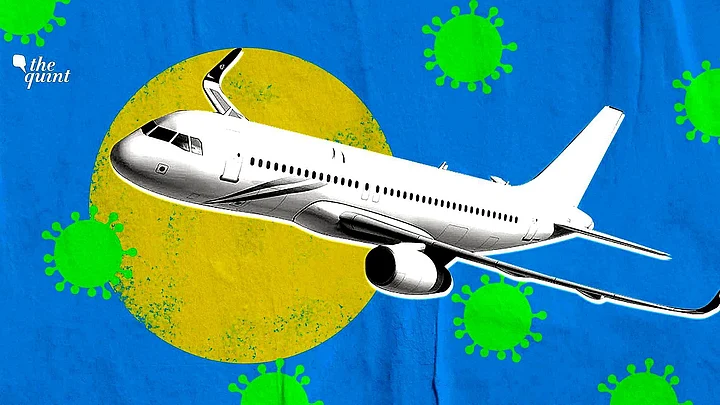The Centre on Friday, 7 January, revised existing guidelines for international arrivals in India, making it mandatory for passengers to home quarantine. The new rules will come into effect from Tuesday, 11 January.
“The existing guidelines for international arrivals in India have been formulated taking a risk based approach. The existing guidelines have been revised in view of reporting of a new variant of SARS-CoV-2 (B.1.1.529; named Omicron) which has been classified as a Variant of Concern by the World Health Organisation,” the Ministry of Health and Family Welfare (MoHFW) said in a notification.
What are the guidelines before travelling and post-arrival? What are the guidelines for people travelling from "at-risk" countries?
How long will the quarantine be?
As per the new guidelines, all international arrivals will have to undergo mandatory home quarantine for seven days.
Is RT-PCR test mandatory for international travellers?
After the one week quarantine, it is mandatory to take an RT-PCR test on the eighth day.
The test reports will then have to be uploaded on the Air Suvidha portal.
What are the guidelines before travelling?
While planning for travel, all travellers should submit the following on the online Air Suvidha portal:
Complete and factual information in a self-declaration form before the scheduled travel.
A negative COVID-19 RT-PCR report, conducted within 72 hours prior to undertaking the journey.
What are the guidelines for people travelling from at-risk countries?
Passengers from at-risk countries will undergo post-arrival testing:
If tested negative, they will have to quarantine for a week.
If tested positive, they will undergo stringent isolation protocols.
At the time of boarding the flight only asymptomatic travellers will be allowed to board after thermal screening.
On arrival, thermal screening will be carried out for all passengers at the airport.
What if someone is found symptomatic during thermal screening?
Passengers found to be symptomatic during screening will be immediately isolated and taken to a medical facility.
If tested positive their contacts shall be identified and managed as per protocol.
Which countries are considered at-risk?
As per the new list, the following countries are considered at-risk:
United Kingdom
South Africa
Brazil
Botswana
China
Ghana
Mauritius
New Zealand
Zimbabwe
Tanzania
Hong Kong
Israel, Congo
Ethiopia
Kazakhstan
Kenya
Nigeria
Tunisia
Zambia
